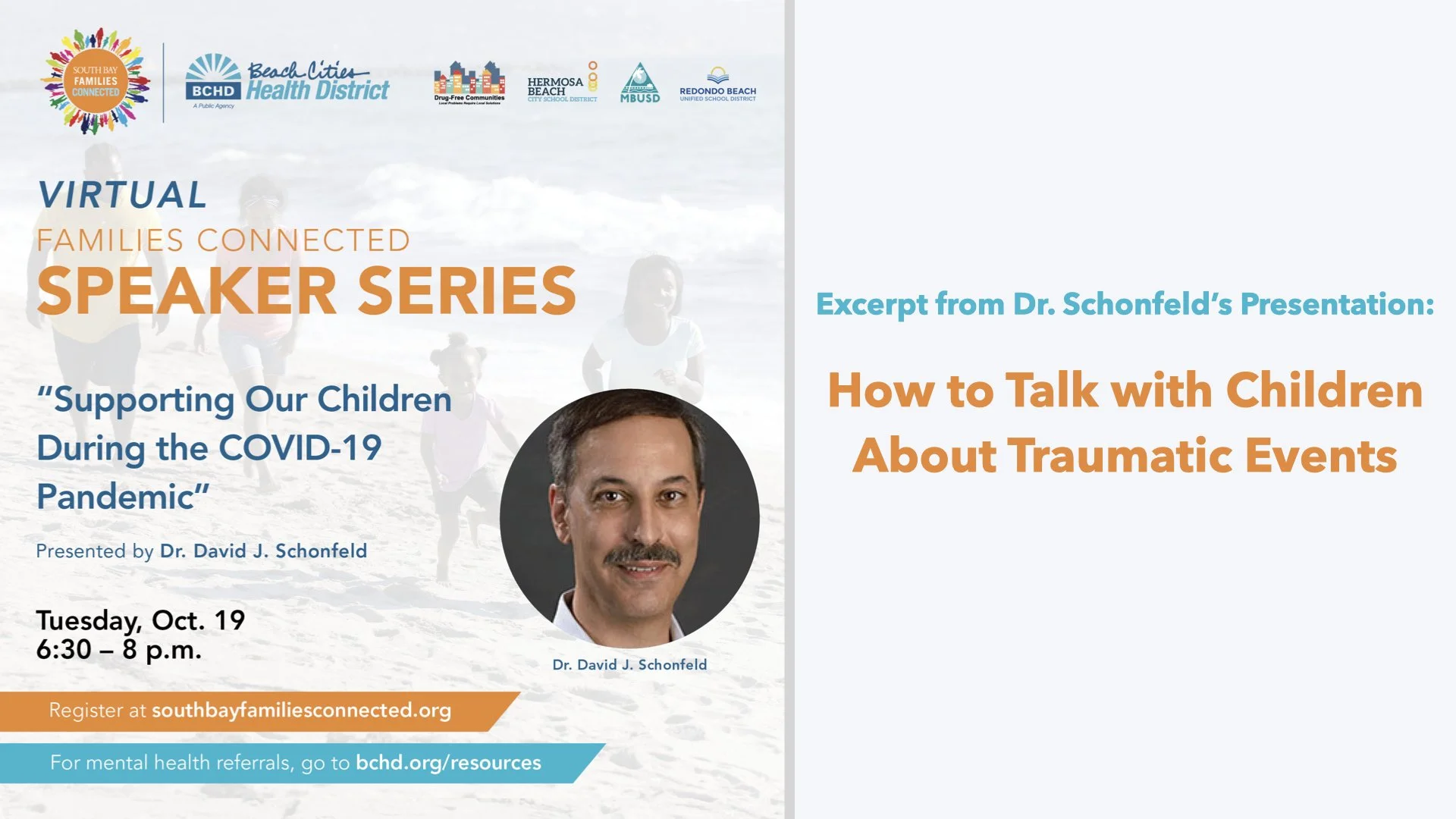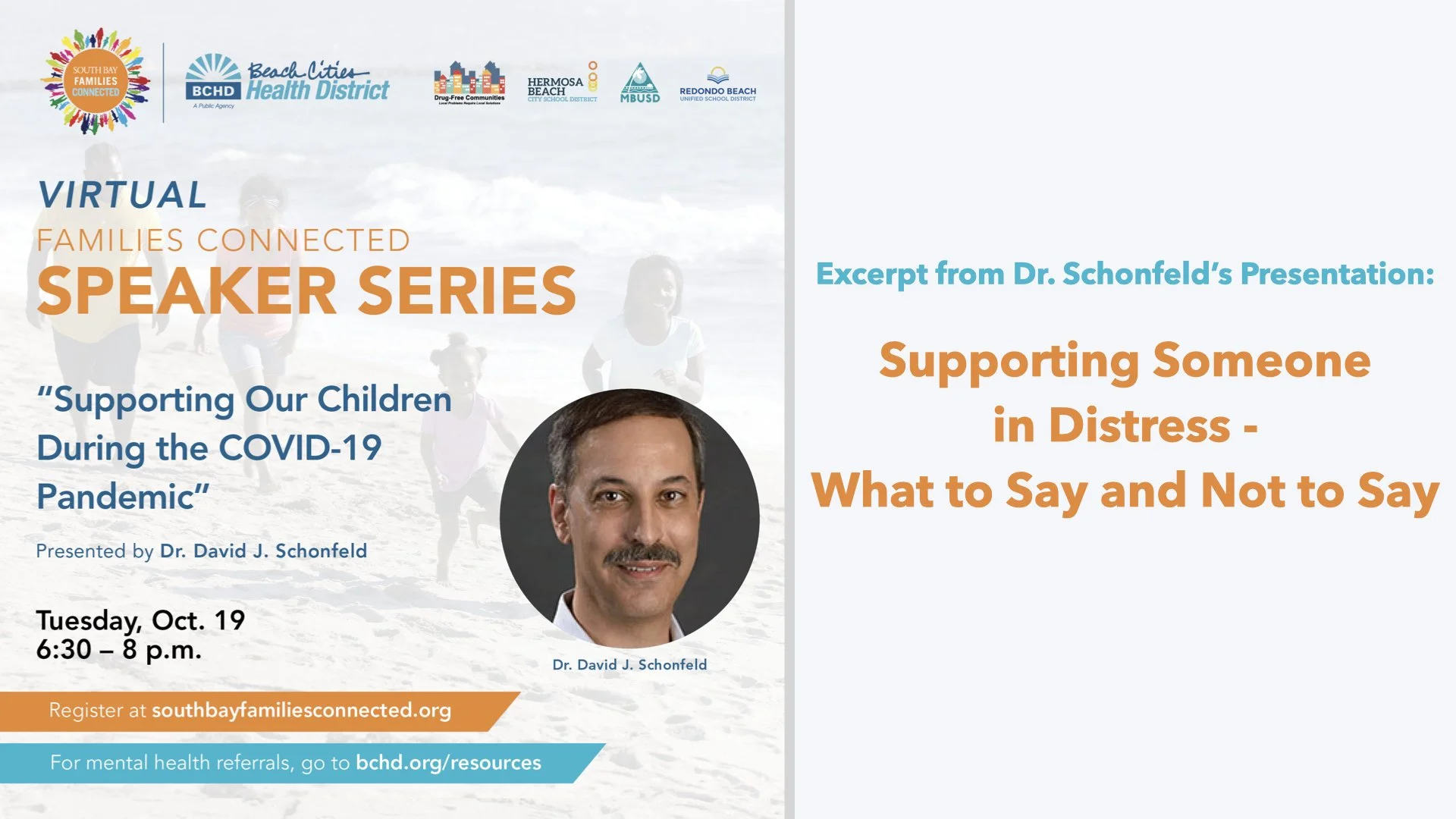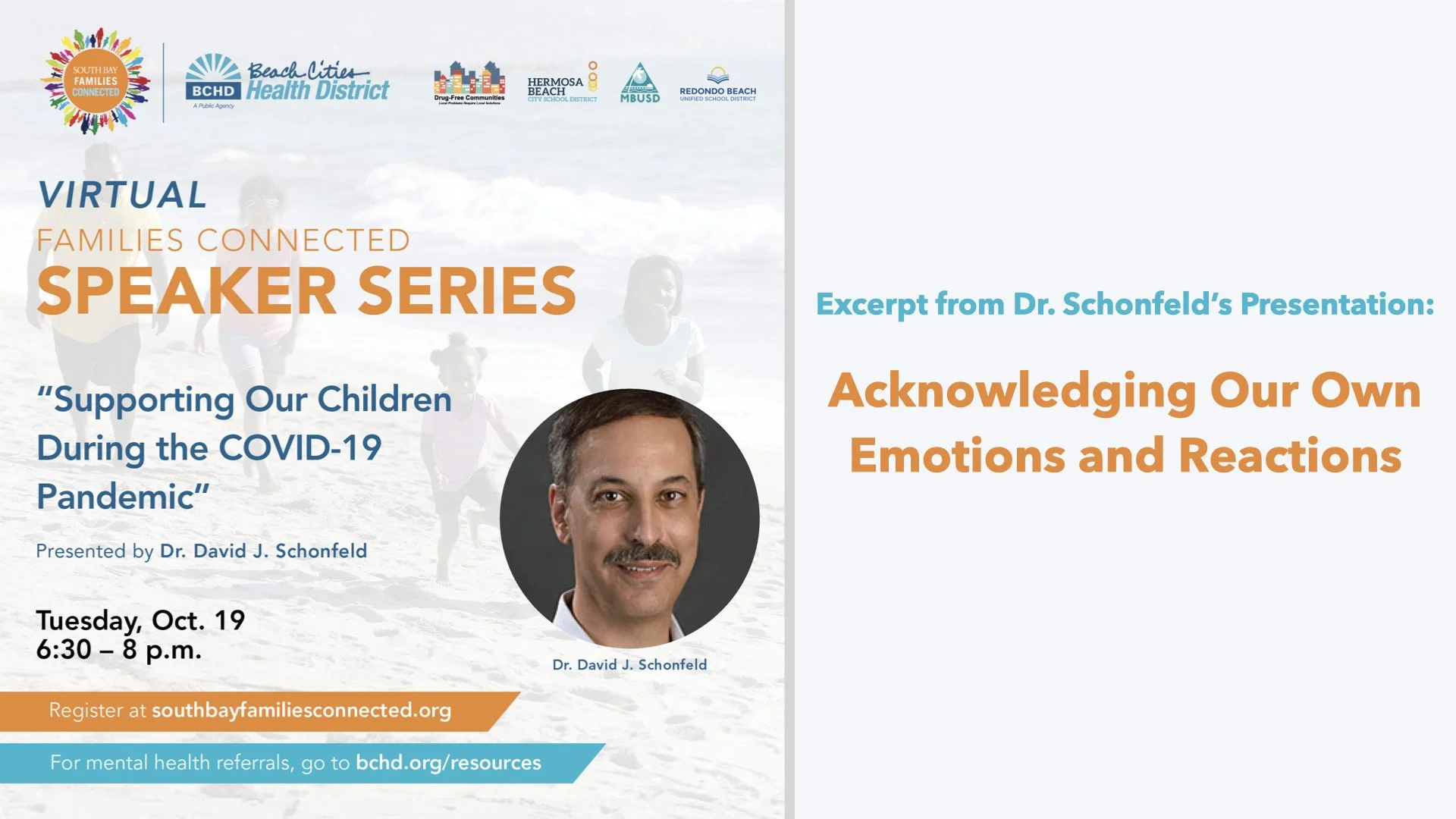Event video
Short clips from the event
How to Talk with Children About Traumatic Events
Supporting Someone in Distress - What to Say and Not to Say
Acknowledging our Own Emotions and Reactions
About the event
This session provides practical advice to parents and other caregivers on how to help our children cope with persistent adjustment difficulties and grief associated with the pandemic. Common adjustment difficulties that are most likely to be seen at this point in the pandemic and practical strategies to provide assistance and support will be reviewed. The distinction between grief and loss, common during this pandemic, and trauma is also discussed; free resources from the National Center for School Crisis and Bereavement and the Coalition to Support Grieving Students to address these challenges are highlighted. The session underscores the need for self-care among adults. A Q and A session is also included. Together, we consider how best to promote the recovery and continued adaptation of children and ourselves.
About the Presenter
David J. Schonfeld, MD, FAAP, established and directs the National Center for School Crisis and Bereavement, located at Children’s Hospital Los Angeles; the Center coordinates the Coalition to Support Grieving Students, comprised of over 125 organizations including the major educational professional organizations (AASA, AFSA, AFT, ASCA, NAESP, NASN, NASP, NASSP, NEA, SSWAA founding members – along with NCSCB and the New York Life Foundation). Dr. Schonfeld is a developmental-behavioral pediatrician and Professor of Clinical Pediatrics at the Keck School of Medicine of USC. He has authored more than 150 scholarly articles, book chapters and books (e.g., The Grieving Student: A Teacher’s Guide, Brookes Publishing) and has given more than 1,000 presentations on the topics of pediatric bereavement and crisis. Schonfeld has provided consultation and training in the aftermath of school crisis events and disasters within the United States and abroad, including the COVID-19 pandemic; school and community shootings in Santa Clarita, CA; Parkland, FL; Newtown, CT; Benton, KY; Las Vegas, NV; Thousand Oaks, CA; Spokane, WA; Marysville, WA; Osaka, Japan; Corning, CA; Aurora, CO; Platte Canyon, CO; Chardon, OH; and Townville, South Carolina; flooding from hurricanes Maria in San Juan, Sandy in NY and NJ, Katrina in New Orleans, and Ike in Galveston, Texas; tornadoes in Joplin, MO and AL; wildfires in Butte County, CA; Sonoma County, CA and in the Great Smoky Mountains in Sevierville, TN; and the 2008 earthquake in Sichuan, China. He coordinated the training for school crisis response teams for the NYC DOE after the events of September 11, 2001. He has also conducted school-based research (funded by NICHD, NIMH, NIDA, the Maternal and Child Health Bureau, William T. Grant Foundation and other foundations) involving children’s understanding of and adjustment to serious illness and death, as well as school-based interventions to promote adjustment and risk prevention.
About the Families Connected Speaker Series
Established in 2016, The Families Connected Speaker Series is provided in partnership with Beach Cities Health District, South Bay Families Connected, Manhattan Beach Unified School District, Redondo Beach Unified School District and Hermosa Beach City School District. The series is offered free of charge to parents and youth throughout our South Bay community.
Beach Cities Health District resources
Related resources from South Bay Families Connected for parents
We're All in this Together
Together with Beach Cities Health District, we also offer a weekly parent support group, the Families Connected Parent Chat. led by Dr. Moe Gelbart of the Thelma McMillen Center, as well as the Families Connected Parent Advisory.





